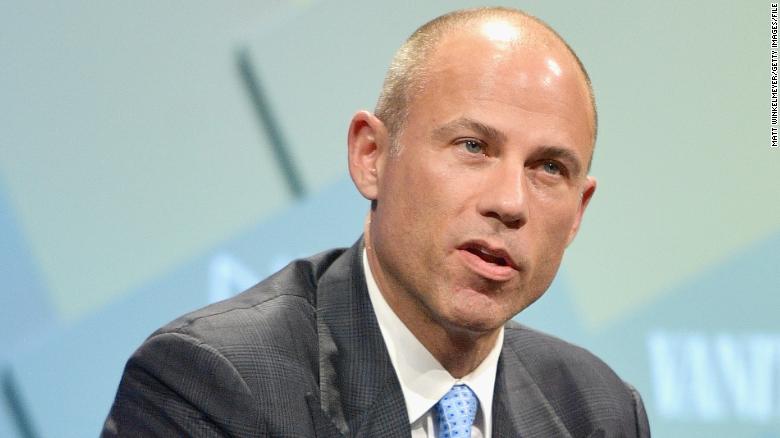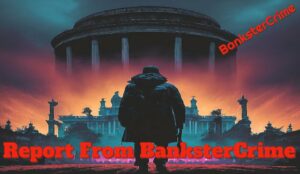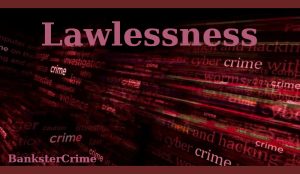Why is the love of money a root of all kinds of evil? To help us answer this, we must look at the passage in its greater context. Near the end of the letter (1 Timothy 6:2–10), Paul is exhorting Timothy regarding the need to “teach and urge these things” to his congregation, “these things” referring back to earlier material in the epistle. Paul then warns Timothy about false teachers who will seek to warp and pervert the content of sound doctrine for their own greedy gain (verses 3–5). Now notice what the apostle says at the end of verse 5: “Imagining that godliness is a means of gain.” These false teachers do what they do for the fame and notoriety they achieve, along with the financial rewards it brings.
Paul wants to steer Timothy away from that trap. In doing so, he tells him the real source of “great gain;” namely, godliness with true contentment (verse 6). Contentment, in a biblical sense, is the recognition that we come into the world with nothing and that everything we have is a gift from God’s hands (verses 7–8). Yet those who desire to be rich (i.e., those who have the “love of money”) are the ones who are led into temptation and fall into a snare (verse 9). Paul concludes the passage by telling Timothy that the love of money leads to all sorts of sin and evil.

Lawyer Michael Avenatti
Lawyer Michael Avenatti said he is confident he will be exonerated after being charged with trying to extort money from Nike.
Avenatti paid back his $4.1 million in short-term loans from the bank, with only one loan under threat of being sent to collections because the payment was late.
Investigators say he got the three loans in 2014 by submitting false IRS records, and he also faces a wire fraud charge on the West Coast. On the East Coast, he is accused of trying to extort money from Nike.
The federal complaint filed against Avenatti on the West Coast says a client who had earlier been involved in Biloxi development proposals introduced the attorney to The Peoples Bank CEO and president Chevis Swetman.
For some, Avenatti’s case brought to mind an earlier federal investigation in South Mississippi that involved a trial attorney and The Peoples Bank.
The case, which unfolded over five years of investigation and trials, rocked South Mississippi political, business and social circles.
In 1998, then-attorney Paul Minor was a multimillionaire living in Ocean Springs and was one of the bank’s top 10 customers, a bank representative later testified. Minor had more than $12 million on deposit at The People’s Bank.
He made his fortune representing clients in asbestos, tobacco and other personal injury cases.
Also in 1998, Minor guaranteed loans totaling $165,000 for two state-court judges.
Former attorney Paul Minor
The judges were supposed to pay off their loans within six months, but the bank had to keep renewing them. Former Chancery Court Judge Wes Teel finally paid off his loan in 2000, with money that Minor supplied through a third party.
Two loans to then-Circuit Court Judge John Whitfield had been consolidated and reduced from a total of $140,000 to $120,000 when bank examiners performing a routine audit started asking questions in 2002.
Hoping to avoid publicity and a federal inquiry, Minor then frantically arranged to pay off the loan through an attorney friend in New Orleans, that attorney later testified at trial.
Minor, Whitfield and Teel all were disbarred, served prison sentences for judicial bribery and have been released. Minor is living in New Orleans, while Teel has relocated from Gulfport to Oxford, and Whitfield is now an ordained minister with a Gulfport congregation.
WHY THE PEOPLES BANK?
In guaranteeing the loans, Minor was doing business with a local bank.
After Avenatti was arrested Monday, many questioned how a South California attorney came to do business with a Biloxi-based bank with 17 branches, all located in South Mississippi.
The federal complaint filed against Avenatti says “M.C.,” put the attorney in touch with “C.S.,” the CEO and president of The People’s Bank. That would be Chevis Swetman, whose great uncle was a founder of the bank in 1896 and who succeeded his father as the bank’s president and CEO in 1983.
The complaint describes “M.C.” as “Meridian Liquidating Trustee,” apparently referring to Mark Calvert, managing director of the Cascade Financial Group in Seattle, Washington, and trustee on the much-publicized Meridian Mortgage bankruptcy case. (Meridian’s owner went to prison for operating a $140 million Ponzi scheme from his company, media reports have detailed.)
Calvert also has a Coast connection. He was working in 2008 on two projects that failed to win approval: a mixed-use development and a casino at the old Broadwater Marina site, both in Biloxi.
Calvert is described on Cascade’s website as having “successfully raised over $500 million in capital for his clients,” and as being experienced in accounting, finance and other areas.
Swetman communicated with Avenatti by telephone and email, the complaint said, requiring extensive financial records to extend short-term loans to the attorney who represented Stormy Daniels and vilifies Trump at every opportunity.
Avenatti had paid off two previous short-term loans totaling $3.6 million at The Peoples Bank when he emailed Swetman in November 2014 about securing a $2.5 million line of credit. The bank requested extensive financial records, resulting in Avenatti’s submission of false IRS records, the complaint says.
In the end, the bank gave Avenatti a $500,000 loan that had to be repaid a year later, in December 2015.
The complaint says Avenatti failed to pay off the loan by the due date and describes the bank contacting the attorney on numerous occasions. Avenatti finally paid off the loan in April 2016 — only after Swetman let the attorney know the debt would be turned over to the bank’s collections department.
For his part, the gregarious Swetman told the Sun Herald on Tuesday that he couldn’t say much about Avenatti’s business with the bank because of banking privacy laws.
Asked about how he met Avenatti, he said, “I’m going to have to crawfish on that one.” Source
UPDATE:
CALIFORNIA BANK FRAUD AND EMBEZZLEMENT
The criminal complaint filed by federal prosecutors in Santa Ana charges Avenatti with two felonies: bank fraud and wire fraud.
But the Internal Revenue Service suspects he committed numerous other crimes still under investigation: tax evasion, money laundering, conspiracy and bankruptcy fraud, among others, court papers show.
1. Avenatti is accused of giving phony tax returns to a bank
In 2014, Avenatti obtained $4.1 million in loans from Peoples Bank in Mississippi for his law firm, Eagan Avenatti, and his failing coffee business, Global Baristas, which operated Tully’s outlets in Washington state and California.
To secure the loans, Avenatti gave the bank phony personal tax returns for 2011, 2012 and 2013, claiming he’d earned a total of more than $14 million, prosecutors say.
In reality, Avenatti never filed any personal tax returns for those three years, according to a sworn statement by Remoun Karlous, a criminal-investigation agent at the IRS.
2. Avenatti was in the habit of dodging taxes, the IRS says
Avenatti still owes the IRS more than $850,000 for unpaid personal taxes from 2009 and 2010, according to the government. And from 2011 to 2017, he filed no personal tax returns, the IRS says.
A similar pattern emerged in the businesses he controlled.
Eagan Avenatti did not file tax returns for 2013 through 2017, even as nearly $138 million was deposited into its bank accounts, according to the IRS. Avenatti was the firm’s managing partner and majority owner, court papers show.
Avenatti & Associates, a company that he owns entirely, filed no tax returns for the years 2011 through 2017 – while collecting nearly $38 million in bank deposits, including almost $24 million from Eagan Avenatti, according to the government.
Avenatti personally received $8.4 million from the law firm and Avenatti & Associates from 2011 to 2017, using the money to live lavishly, Karlous alleged in his sworn statement.
3. Avenatti is accused of stealing money from a client
Avenatti is charged with wire fraud for taking $1.6 million in settlement proceeds that he was entrusted to hold for a client, Gregory Barela of Irvine, in an intellectual-property dispute.
In January 2018, Avenatti had the money wired to a bank account that he controlled, but never told Barela; Avenatti then used it all for personal expenses, prosecutors say.
“To this day, nearly 15 months later, Mr. Avenatti’s client is still waiting for the bulk of his settlement, even after he hired another attorney who discovered that Mr. Avenatti had the funds all along,” U.S. Attorney Nick Hanna said Monday at a news conference in Los Angeles.
Barela attorney Steven E. Bledsoe said he’d never heard of a lawyer falsifying legal documents to steal from a client, as prosecutors alleged.
“This is a very sad situation for all involved,” he said.
4. Avenatti is accused of covering up his crimes
Avenatti lied to the IRS when confronted with evidence that Eagan Avenatti and his coffee business had withheld millions of dollars from employees’ paychecks for taxes, but failed to transmit the money to the government, prosecutors say.
He also switched the names of corporate entities and opened secret bank accounts to block attempts by the IRS to seize money to cover the taxes, according to the government.
5. Stay tuned for more charges
In court papers, the IRS listed various crimes it suspects Avenatti committed beyond the charges unsealed on Monday.
One was his obstruction of IRS efforts to collect payroll taxes from his coffee business. Another was potential tax crimes involving his law firm.
The alleged theft from Barela could also yield money laundering charges, the IRS says. And his failure to report that income in Eagan Avenatti’s bankruptcy proceedings, according to the IRS, could result in a bankruptcy fraud charge. Source
StevieRay Hansen
Editor,HNewsWire
“Have I therefore become your enemy by telling you the truth?”
For those people who don’t believe God exist and waste so much time trying to convince everyone else he doesn’t exist…
Justice is a word that stands alone, adding anything to it demeans it….
It is impossible to find anyone in the Bible who was a power for God who did not have enemies and was not hated.
HNewsWire Radio
8.8K Views On YouTube
MY MISSION IS NOT TO CONVINCE YOU, ONLY TO INFORM…
Jesus come quick, there is nothing left in society that’s sacred….
![]()




